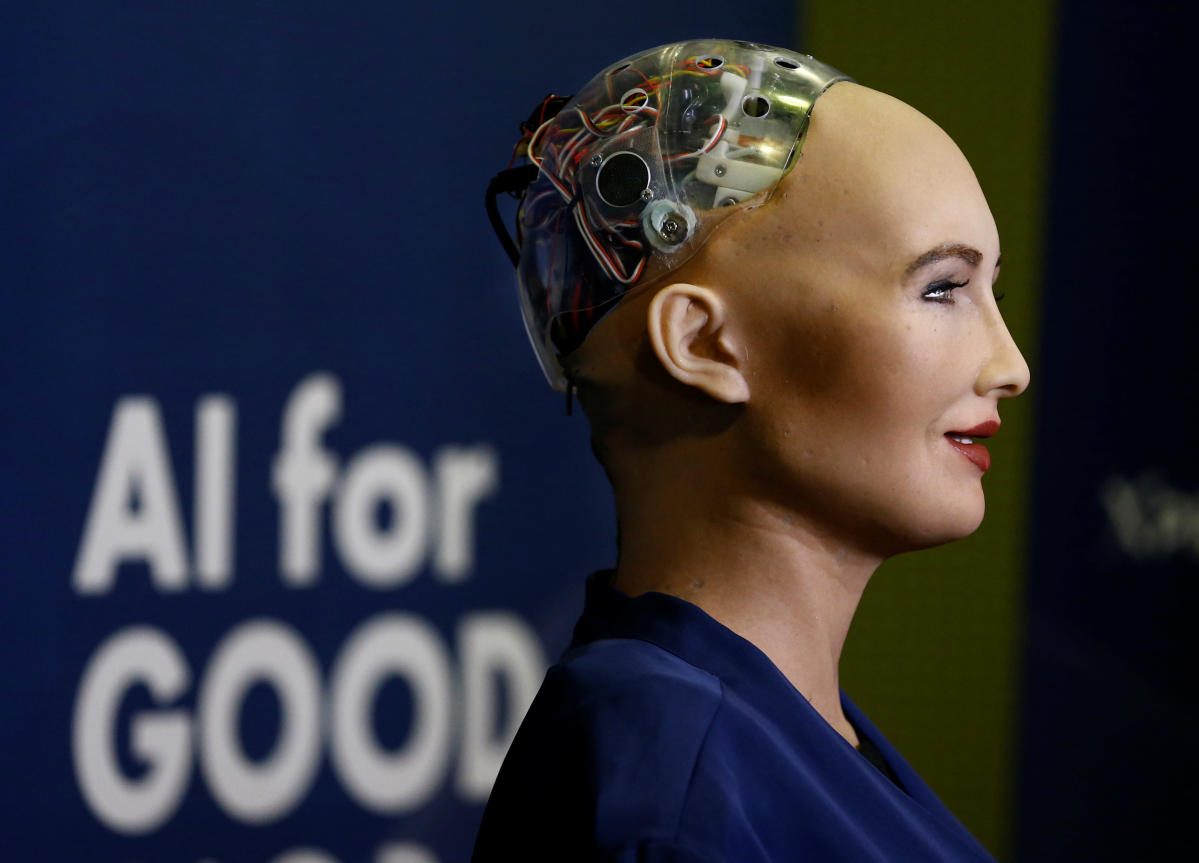As companies like Alphabet (GOOG, GOOGL) and Microsoft (MSFT) struggle to create the best artificial intelligence technology, one expert questioned whether they’re doing it the right way.
“Alan Turing famously suggested that the intelligence test we later called the Turing test was ‘How similar can an AI be to a human?’ Trying to mimic humans has been a goal of many computer scientists ever since,” said Erik Brynjolfsson, head of the Stanford Digital Economy Lab, on Yahoo Finance Live (video above).
“Can we fool people so they can’t tell the difference?” he continued. “I think it’s a very impressive goal, but it’s also a trap. The reason it’s a trap is that when we make AI that mimics humans, it actually destroys the value of human labor and leads to a greater concentration of wealth and power.”
Sophia, a robot incorporating the latest technologies and artificial intelligence developed by Hanson Robotics, is pictured in Geneva, Switzerland, June 7, 2017. REUTERS/Denis Balibouse
However, there is a better way forward, Brynjolfsson said.
“There’s an alternative approach, which is to build AI that augments humans and allows us to do new things that we’ve never done before,” he explained. “Do not try to imitate us, but try to expand our skills. An AI that does this is more likely to result in a prosperity blossoming and a more broadly shared prosperity.”
AI could unlock “trillions of dollars in value.”
Built by open AI, ChatGPT took the world by storm when it launched in November, reaching 1 million users within the first week of its launch.
“ChatGPT is an example of a new class of AI that I think is a really big breakthrough,” said Brynjolfsson. “These are called Foundation models. They include large language models that can write stories, poems, emails, advertisements, and many other types of text.”
He added that from an economic point of view, ChatGPT has thrown the door wide open. And the possibilities go beyond text functions, as shown by OpenAI’s Dall-E.
Other AI platforms “make video, audio and even write computer code,” he said. “These tools are having a range of impacts that I think are larger than even their developers initially anticipated. Trillions of dollars of value will be created.”
However, as advances in generative AI accelerate, Brynjolfsson warned that society’s understanding of the social and economic impact of the technology has yet to catch up.
“The next 10 years could be some of the best 10 years we’ve ever had, or some of the worst,” he said. “But we need to adapt our institutions. … The rest of us in economics and social sciences need to get on the ball and think about how we can make sure our society is ready for these changes.”
“If we get it right, I think we will have unprecedented productivity and growth and we can have shared prosperity,” Brynjolfsson added. “But it’s far from inevitable.”
Allie Garfinkle is Senior Tech Reporter at Yahoo Finance. Follow her on Twitter at @agafinks and further LinkedIn.
Click here for the latest stock tickers from the Yahoo Finance platform.
Read the latest financial and business news from Yahoo Finance.
Download the Yahoo Finance App for Apple or Android.
Follow Yahoo Finance on Twitter, Facebook, Instagram, LinkedInAnd youtube.
Don’t miss interesting posts on Famousbio









